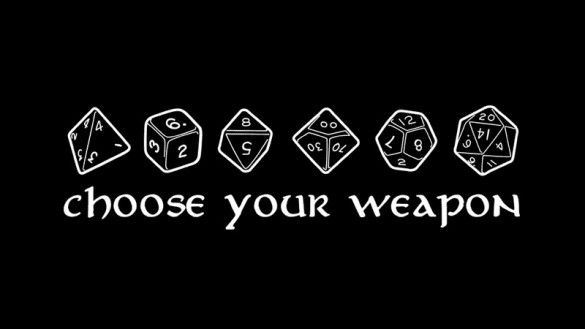Being a Dungeon Master in any tabletop
- Foster the relationship between the players, the game, and keep the play session moving.
- Arbiter of the rules
- Set the stage for the adventure, but not dictate it.
Fostering the relationship
Dungeon Master’s are the glue that keeps the game running by engaging the players in some form of adventure. They are checking if the players look to be engaged with what is happening, enabling hero(or villain depending on the nature of your game) moments where each player has a spotlight based on their actions or decisions. A competent Dungeon Master constantly evaluates if members of the table are lost and bored while the other are having a drinking contest or shopping trip. React to your players and embrace the content that they seem to enjoy, challenge them to expand their interests, but let them point the compass.
You will find recommendation after recommendation that a session zero should be done to establish ground rules, the tone of the game, and the focus of the players. I do not want to undervalue this tactic, but for a new Dungeon Master, you simply don’t have the experience and knowledge to know how to run a session zero. Instead, the best recommendation that can be made is to develop the skills to be self-critical on the game. After every session, take notes on what felt like it went well and what did not to evaluate and research why this might have been.
Are half the party bored unless there is combat, loot, and rewards or are players begging for role-playing moments that do not occur because you are not engaging with their requests? Are they asking for a reason to care about the plotline you are pushing?
Did you nearly kill the party in a fight you did not expect to be so difficult? Do a post mortem on whether it was just a result of bad tactics/luck(dice rolls) or did abilities get used incorrectly resulting in a harder conflict then intended.
The point of this self-evaluation is not to be self-destructive but learn from any mistakes (intended or unintended) to improve for the next session or campaign. React and shift your priorities when presenting the content.
Rule Arbiter
Dungeon Masters are the final word at the table about how to apply rules, but they must strive to apply them consistently and fairly. Whether you adhere strictly to a system rule book (D&D 3E, 4E, 5E, Pathfinder, or any other system) or you have custom rules you implement the rules need to be the same between each session.
The Critical Role Dungeon Master Matthew Mercer has a great saying “You can certainly try” in response to player questions and requested actions. The point of the Dungeon Master is not to tell the player how to play or what to do, but explain how they can attempt to do each action. If the player wants to do something most would consider impossible, you determine what they need to roll to see if they succeed or not. The harder the task the higher they need to roll, but this keeps the player from blaming the Dungeon Master from blocking their actions and role-playing and the failure rests on the player instead of due to the Dungeon Master saying “No!”.
There will be times where you realize that the rules are providing unfair advantages or unbalanced situations in the game. Evaluating these situations and deciding if there should be changes to the rules can occur, but are best done outside of play sessions with clear communication between the players and the Dungeon Master. It could either be a discussion or the Dungeon Master explaining the rule change and communicating this is how it will work going forward consistently for future game sessions.
Depending on your game there can be benefits to “fudging” dice rolls as a Dungeon Master from behind the traditional Dungeon Master Screen. This can be in the form or changing
Staging the Adventure
You have spent weeks of time planning the perfect adventure, the best plot hooks, and the perfect set pieces for glorious life and death battle between your players and the biggest enemy in the game, but your players are spending all their time away from the
Whether your adventure is homebrew or straight from a published adventure you must understand that your job as a Dungeon Master is to set the stage and let the players decide what happens. You cannot force their hand and direct where the party is supposed to go on the predetermined path. The party might simply be inclined after playing their characters that instead of being the noble heroes that they might instead be the villainous bad guys.
The Dungeon Master should solicit the feedback of the players and collect their back story information, but after that, it is the Dungeon Master’s job to set the stage for the players to make decisions. These can be informed or uninformed decisions based on the situations, but the consequences of actions must always come from the decisions the players make. You might have presented 3 side quests for the player to interact with, but they simply don’t care and want to rush to find something related to their backstory or the main focus of the campaign.
All change in the plot, environment, politics, or rewards and risks should all flow from the decisions of the players. Keep in mind that choosing not to act is still a decision by the players, so if the players decide to rest their next battle might be harder because the enemies had time to heal or go get reinforcements. The Dungeon Master has to juggle the consequences of direct decisions, the unknown ramifications of time in the game, and non-player character perceptions of what has happened. The more you can ground these impacts in the various personalities of the factions, environments, and characters the more you will have a living and breathing world that your players want to inhabit.
If you are using a campaign book or even if you created everything from scratch you need to know options of where the party might go to prepare in advance. You don’t need everything detailed out, but at least a vague concept of where the party might head.
Additionally, the valuable skills of improvisation are key to having a world that the players are impacting. If they take actions that you are not expecting you should address the immediate impacts at the moment, but it might be practical to take a short break or end a session on the cliffhanger to enable you to chart out new branches of the story that you had not considered.
Let the players chart the course and you merely update them on the impacts of their route through the world. Their reputation can grow or shrink depending on if they ran towards the fight or
There can even be a real possibility that you need to turn the campaign into something entirely different from what you planned or was in your purchased adventure because they are interested in other things. Salvage what you can, inform them of their choices, and you can even punish the characters in the game, but never punish the players for being honest about what they enjoy about the game.

